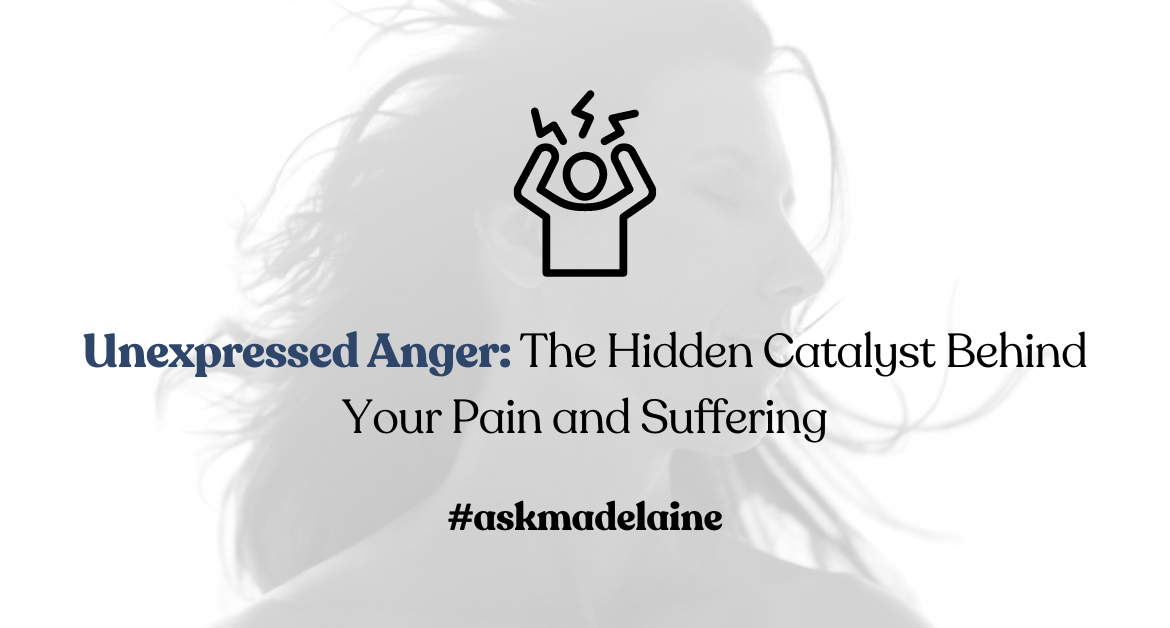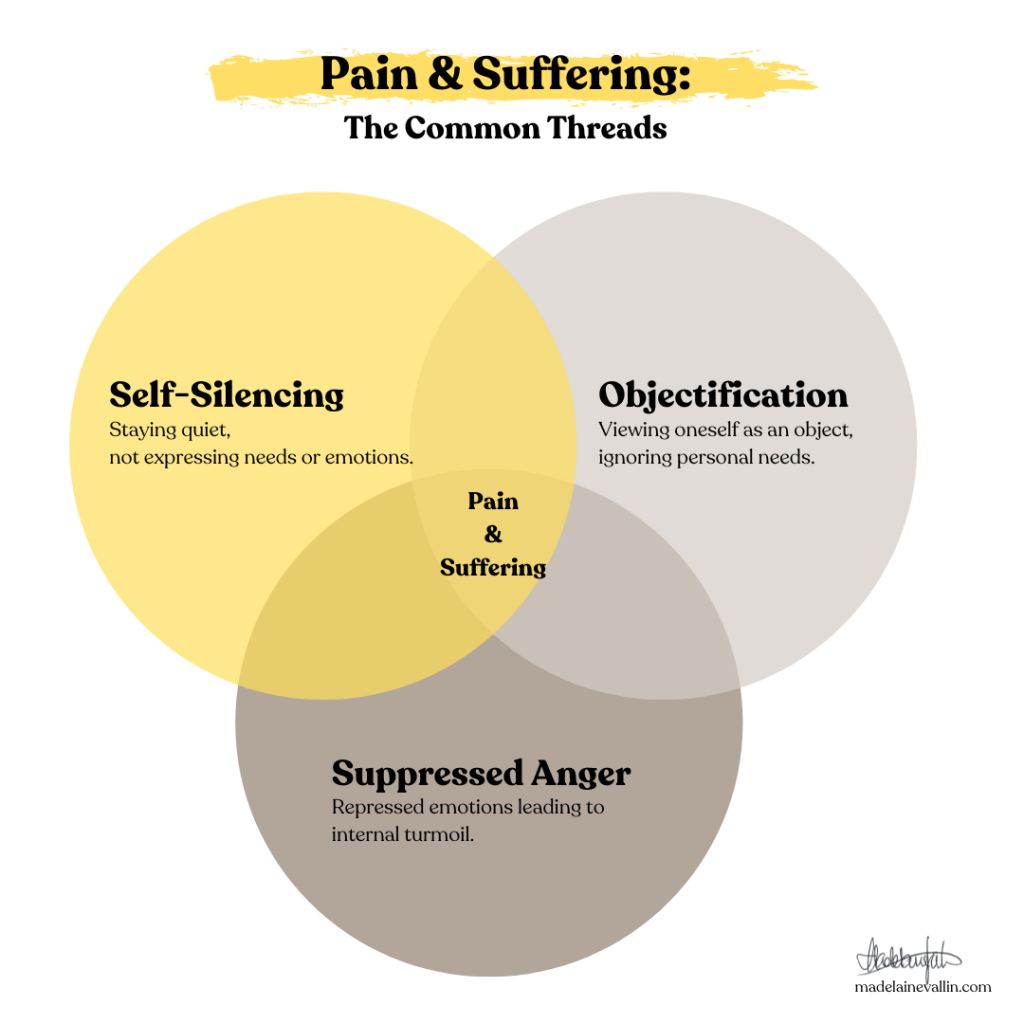

Unexpressed Anger: The Hidden Catalyst Behind Your Pain and Suffering
In our journey toward holistic well-being, we often encounter physical, emotional, and spiritual pain that seems inexplicable or resistant to healing. We may try different therapies, practices, or lifestyle changes, yet the pain persists. What if the root of your suffering lies in something deeply buried, something often overlooked or misunderstood—unexpressed anger?
The Silent Saboteur: Unexpressed Anger
Anger is a powerful emotion, one that can serve as a catalyst for change, a signal that something within us needs attention. However, when anger is suppressed or unexpressed, it doesn’t simply disappear. Instead, it festers within, manifesting in various forms of physical and emotional pain.
Research has shown that suppressed anger is linked to a range of health issues, including cardiovascular disease, immune system dysfunction, and mental health disorders (Smith et al., 2018). As a holistic practitioner, I’ve witnessed how unexpressed anger can be the silent saboteur of health and happiness. It can contribute to chronic conditions, emotional distress, and a deep sense of disconnection from oneself. This suppressed anger often results in a cycle of self-silencing, objectification of one’s own needs, and a constant struggle with inner turmoil.
Self-Silencing: The Dangerous Habit of Suppression
Many of us, especially women, have been conditioned to suppress our anger, to stay quiet and accommodate rather than speak our truth. This habit of self-silencing is not only emotionally damaging but also physically harmful. The energy of unexpressed anger doesn’t vanish; it internalises, often leading to conditions like chronic pain, anxiety, depression, or even autoimmune diseases (Lutgendorf & Costanzo, 2003). By not allowing ourselves to express anger, we deny a fundamental part of our emotional spectrum, cutting off a vital source of self-empowerment.
Objectifying the Self: A Disconnect from Authenticity
When we suppress our anger, we also start to objectify ourselves—viewing our emotions, needs, and desires as secondary or unimportant. This self-objectification leads to a disconnection from our true selves, making us more susceptible to the expectations and judgments of others. We become people-pleasers, striving to meet external standards rather than honouring our internal truth.
This disconnection can create a void within, a deep sense of dissatisfaction that no amount of external validation can fill. It’s in this space of disconnect that pain and suffering thrive, feeding off the energy of unacknowledged emotions (Brown, 2012).
The Common Threads: Self-Silencing, Objectification, and Suppressed Anger
When we examine the patterns of pain and suffering in our lives, self-silencing, objectification, and suppressed anger often emerge as common threads. These behaviours are deeply intertwined, each reinforcing the other in a cycle of emotional and physical distress.
– Self-Silencing leads to the suppression of anger, which in turn disconnects us from our authentic selves, perpetuating the cycle of pain.
– Objectification causes us to devalue our emotions, leading to further suppression and silencing, trapping us in a state of chronic dissatisfaction and suffering.
– Suppressed Anger festers within, manifesting in physical ailments, emotional instability, and a pervasive sense of disempowerment.
Reclaiming Power: Embracing Anger as a Healing Force
To break this cycle, we must begin by reclaiming our power and redefining our relationship with anger. Anger, when acknowledged and expressed healthily, becomes a force for positive change. It helps us set boundaries, assert our needs, and align more closely with our true selves.
I believe in the power of anger as a guiding force. It’s not something to be feared or suppressed but embraced and understood. Anger can steer your ship in the right direction, helping you affirm your beliefs, values, and identity. It’s a reminder of the fierce energy that resides within, an energy that can drive you towards healing and wholeness.
In my practice, I encourage clients to explore their anger, to express it safely and constructively. This process often uncovers deep-seated beliefs and emotions that have been ignored or silenced for years. As these emotions are brought to light and processed, clients frequently experience profound shifts in their physical and emotional well-being.
Your Anger is a Pathway to Healing
If you’re struggling with chronic pain, emotional distress, or a sense of disconnection from your true self, it may be time to explore the role of unexpressed anger in your life. By giving voice to your anger, you reclaim your power and open the door to healing.
Remember, anger is not your enemy. It’s a powerful ally that, when embraced, can lead you to a deeper understanding of yourself and a more authentic, empowered life.
REFERENCES
– Brown, B. (2012). Daring greatly: How the courage to be vulnerable transforms the way we live, love, parent, and lead. Gotham Books.
– Lutgendorf, S. K., & Costanzo, E. S. (2003). Psychoneuroimmunology and health psychology: An integrative model. Brain, Behavior, and Immunity, 17(4), 225-232.
– Smith, T. W., Williams, P. G., & Benjamin, L. S. (2018). Anger, emotional expression, and cardiovascular disease: Toward an integrative model. American Psychological Association.
PLUS – Whenever you’re ready, there are 2 ways we can work together:
- Sign up for one of our current courses at ASHC and get taught by my team of advisors and me. All our courses are internationally and nationally industry-approved and will equip you with all the tools to open up your own professional private practice.
- Apply for one of only three spots as my private client.


Leave a Reply